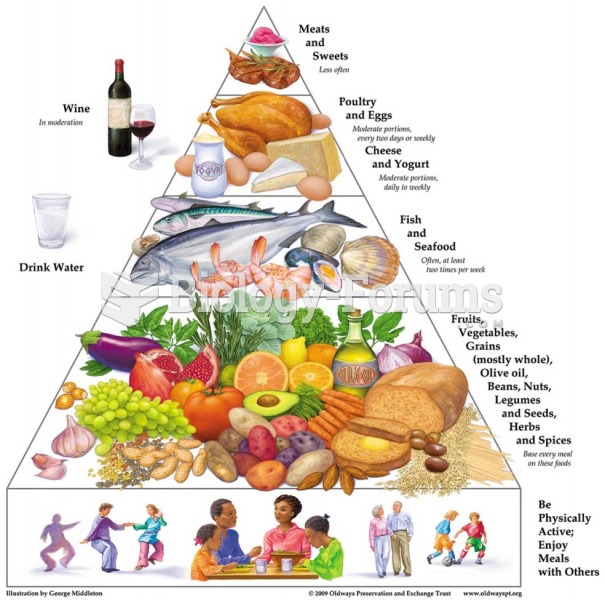|
|
|
ACTH levels are normally highest in the early morning (between 6 and 8 A.M.) and lowest in the evening (between 6 and 11 P.M.). Therefore, a doctor who suspects abnormal levels looks for low ACTH in the morning and high ACTH in the evening.
Urine turns bright yellow if larger than normal amounts of certain substances are consumed; one of these substances is asparagus.
The average older adult in the United States takes five prescription drugs per day. Half of these drugs contain a sedative. Alcohol should therefore be avoided by most senior citizens because of the dangerous interactions between alcohol and sedatives.
There are 60,000 miles of blood vessels in every adult human.
According to the National Institute of Environmental Health Sciences, lung disease is the third leading killer in the United States, responsible for one in seven deaths. It is the leading cause of death among infants under the age of one year.
 Erythroblastosis fetalis. (a) The condition occurs with an RH+ father and RH– mother. (b) First preg
Erythroblastosis fetalis. (a) The condition occurs with an RH+ father and RH– mother. (b) First preg
 Defibrillator. Defibrillators are devices that supply a voltage charge to the heart in the hope of r
Defibrillator. Defibrillators are devices that supply a voltage charge to the heart in the hope of r





